Hands-on Experiments to Try at Home
Engaging your child in hands-on experiments at home can be both fun and educational. These experiments not only prepare them for science competitions but also ignite a love for learning. Here are some simple yet fascinating fun science activities you can try with your child.
Volcano Eruption: Chemistry in Action
One of the classic experiments is the baking soda and vinegar volcano. It’s easy to set up and demonstrates a chemical reaction. You’ll need a small bottle, baking soda, vinegar, dish soap, and food coloring. Fill the bottle with baking soda, a bit of dish soap, and food coloring. When you pour in the vinegar, the mixture will bubble up and overflow like a volcano. This experiment shows the reaction between an acid (vinegar) and a base (baking soda), creating carbon dioxide gas. It’s a hit with kids and a great way to explain chemical reactions.
Magic Milk: Exploring Surface Tension
For this experiment, you need milk, food coloring, and dish soap. Pour milk into a shallow dish and add drops of different food colors. Then, dip a cotton swab into dish soap and touch it to the milk’s surface. Watch the colors swirl and mix in a beautiful pattern. This happens because the dish soap breaks the surface tension of the milk, causing the colors to move. It’s a simple and visually stunning way to teach your child about surface tension and the properties of liquids.
Homemade Lava Lamp: Density and Polarity
Creating a homemade lava lamp is a fun way to explore density and polarity. You’ll need a clear bottle, water, vegetable oil, food coloring, and Alka-Seltzer tablets. Fill the bottle three-quarters full with oil, then add water until it’s nearly full. Add a few drops of food coloring, which will sink through the oil and mix with the water. Break an Alka-Seltzer tablet into pieces and drop them into the bottle. The reaction creates bubbles that carry the colored water through the oil, mimicking a lava lamp. This experiment teaches about the density of liquids and the concept of immiscible liquids.
Egg Drop Challenge: Engineering and Physics
The egg drop challenge is a fantastic way to teach engineering and physics. The goal is to create a structure that will protect a raw egg from breaking when dropped. Use materials like straws, tape, paper, and cardboard. Encourage your child to design and build their own contraption. After the structure is complete, drop the egg from a height and see if it survives the fall. This experiment involves problem-solving, creativity, and an understanding of force and impact. It’s a great way for your child to learn through trial and error.
Balloon Rocket: Newton’s Third Law
Demonstrate Newton’s Third Law of Motion with a balloon rocket. You’ll need a balloon, string, tape, and a straw. Thread the string through the straw and tie the ends to two fixed points, creating a taut line. Inflate the balloon and tape it to the straw without tying the end. When you release the balloon, it will propel itself along the string. This experiment shows that for every action, there is an equal and opposite reaction. It’s a simple and fun way to introduce your child to basic physics principles.
Solar Oven: Harnessing the Sun’s Energy
Building a solar oven is an excellent way to teach about renewable energy and the greenhouse effect. You’ll need a cardboard box, aluminum foil, plastic wrap, and black construction paper. Line the inside of the box with aluminum foil and place black paper at the bottom. Cover the top with plastic wrap to create a sealed space. Angle the box to face the sun and place a small food item, like a marshmallow, inside. The black paper absorbs heat, and the plastic wrap traps it, cooking the food. This experiment shows how solar energy can be used for practical purposes.
Static Electricity: Bending Water
Explore static electricity with a simple and surprising experiment. You’ll need a plastic comb and a steady stream of water from a faucet. Rub the comb on a wool cloth to charge it with static electricity. Then, bring the comb close to the stream of water without touching it. The water will bend towards the comb due to the attraction of opposite charges. This experiment is a fun way to explain static electricity and the concept of electrical charges.
Growing Crystals: Patience and Observation
Growing crystals is a fascinating experiment that teaches patience and observation. You’ll need a jar, water, salt (or sugar), and a piece of string. Dissolve as much salt or sugar as possible in hot water. Tie the string to a pencil and place it over the jar, with the string hanging into the solution. Over a few days, crystals will start to form on the string. This experiment shows how solutions work and the process of crystallization. It’s a slow but rewarding project that highlights the beauty of natural processes.
DIY Stethoscope: Exploring Sound Waves
Create a simple stethoscope to explore sound waves and the human body. You’ll need a small funnel, a length of clear tubing, and a balloon. Stretch the balloon over the wide end of the funnel and secure it with a rubber band. Attach the tubing to the narrow end of the funnel. Place the balloon-covered end on your chest and listen through the tubing. This homemade stethoscope amplifies the sound of your heartbeat, demonstrating how sound waves travel. It’s a great way to introduce your child to biology and the basics of medical equipment.
Invisible Ink: Chemistry and Secrets
Make invisible ink to explore chemistry and have some secretive fun. Use lemon juice or baking soda mixed with water as your ink. Write a message on paper using a cotton swab dipped in the mixture. Let it dry completely. To reveal the message, gently heat the paper using a light bulb or iron. The heat causes the invisible ink to oxidize and become visible. This experiment teaches about chemical reactions and oxidation. Plus, it’s a fun way to send secret messages!
These hands-on experiments not only prepare your child for science competitions but also make learning exciting and interactive. By exploring these experiments together, you foster a love for science and discovery. So, gather your materials and start experimenting at home today!
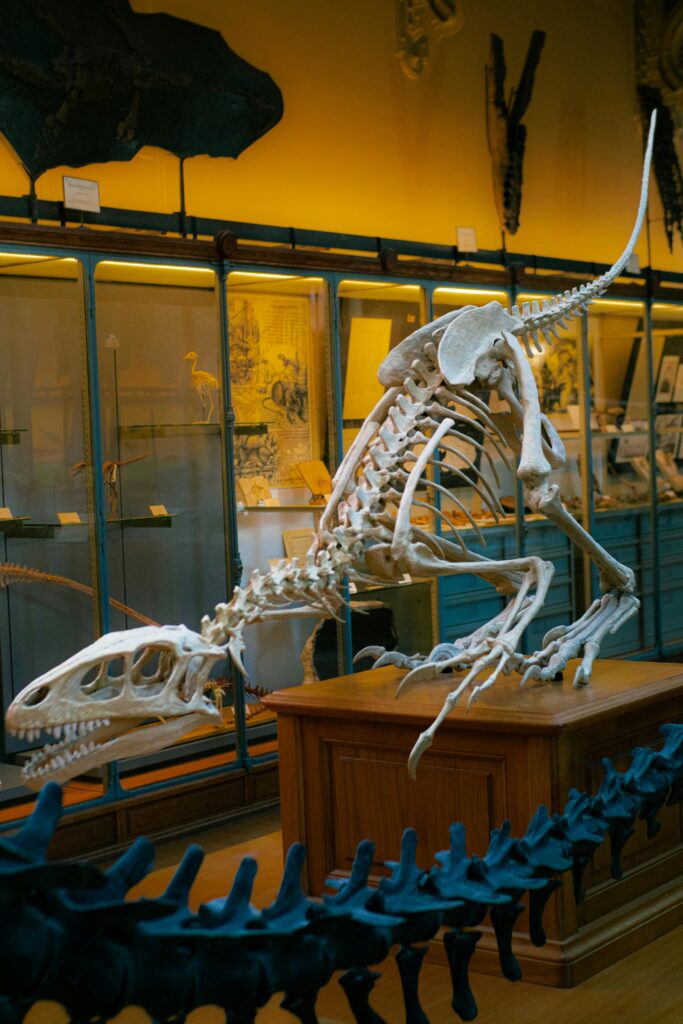
Visiting Science Museums and Exhibits
Exploring science museums and exhibits can ignite your child’s curiosity and passion for science. In Ontario, you’re fortunate to have access to some amazing venues. These places offer hands-on experiences that are both educational and fun. Here are some top science museums and exhibits you can visit with your child to prepare for science competitions.
Ontario Science Centre: A World of Discovery
The Ontario Science Centre in Toronto is a treasure trove of interactive exhibits. Here, your child can learn about everything from space to biology. The hands-on displays make complex concepts easy to understand. You can explore the rainforest exhibit, which teaches about ecosystems and biodiversity. The KidSpark area is perfect for younger children, with activities that encourage exploration and creativity. Visiting the Science Centre is a fantastic way to spend a day learning and having fun.
Science North: Interactive Learning in Sudbury
Science North in Sudbury is another must-visit. This museum features a giant IMAX theatre, a digital planetarium, and interactive exhibits. Your child can engage with live animals, explore the Earth’s geology, and even participate in hands-on experiments. The Dynamic Earth exhibit is particularly fascinating, offering insights into mining and the earth’s crust. By visiting Science North, your child will gain a deeper understanding of the natural world and science principles.
Royal Ontario Museum: History and Science Combined
The Royal Ontario Museum (ROM) in Toronto offers a mix of history and science. While it’s known for its dinosaur skeletons and ancient artifacts, it also has incredible science exhibits. The Earth and Space gallery, for example, is perfect for young astronomers. The biodiversity section teaches about different species and conservation efforts. Visiting the ROM can help your child see the connections between history and science, enriching their knowledge for science competitions.
Canada Science and Technology Museum: Innovation and Invention
Located in Ottawa, the Canada Science and Technology Museum is all about innovation. Your child can explore exhibits on transportation, communication, and space technology. The museum’s hands-on approach makes learning about inventions and discoveries exciting. The Sound by Design exhibit lets kids experiment with sound waves and music. By visiting this museum, your child will be inspired by the creativity and ingenuity that drives scientific progress.
Ripley’s Aquarium of Canada: Marine Science Up Close
Ripley’s Aquarium in Toronto offers a unique look at marine science. Walking through the Dangerous Lagoon tunnel, surrounded by sharks and rays, is an unforgettable experience. The interactive touch tanks allow your child to get up close with sea creatures. The aquarium also has educational programs and demonstrations. Learning about marine life and ecosystems at Ripley’s can deepen your child’s understanding of biology and environmental science.
Exploring Science through Exhibits
Many science museums and exhibits host special events and temporary exhibitions. These can provide unique learning opportunities. Check the museums’ websites for upcoming events that align with your child’s interests. For example, the Ontario Science Centre often hosts traveling exhibits on topics like dinosaurs or space exploration. Attending these events can give your child a broader perspective on science and its many fields.
Planning Your Museum Visits
When planning your visits, involve your child in the process. Let them choose exhibits they’re excited about. This makes the experience more engaging and memorable. Plan to spend a few hours at each museum to fully explore the exhibits. Bring a notebook for your child to jot down interesting facts and observations. Discuss what they learned on the way home, reinforcing the knowledge gained. Making museum visits a regular activity can significantly boost your child’s enthusiasm for science.
Benefits Beyond Competitions
Visiting science museums and exhibits offers benefits beyond preparing for competitions. It helps develop critical thinking and problem-solving skills. These experiences can also inspire future career interests in fields like engineering, biology, or astronomy. By exposing your child to a variety of scientific topics, you help them discover their passions. Plus, museum visits are a fun way to spend quality family time together.
Making the Most of Memberships
Consider investing in museum memberships. Many museums offer annual passes that provide unlimited access to exhibits and special events. Memberships often come with additional perks like discounts on programs and merchandise. This can be a cost-effective way to encourage regular visits and continuous learning. Look for reciprocal agreements that allow access to multiple museums with one membership. This way, you can explore different venues without breaking the bank.
Virtual Tours and Online Resources
If visiting in person isn’t always possible, take advantage of virtual tours and online resources. Many museums offer virtual exhibits and educational videos on their websites. These can be great supplements to in-person visits and help maintain your child’s interest in science. Virtual tours also allow you to explore museums from around the world. This broadens your child’s exposure to different scientific fields and cultures.
Exploring science museums and exhibits is a wonderful way to prepare your child for science competitions. It makes learning interactive and fun, fostering a lifelong love of science. So, plan your visits, explore together, and watch your child’s curiosity grow!
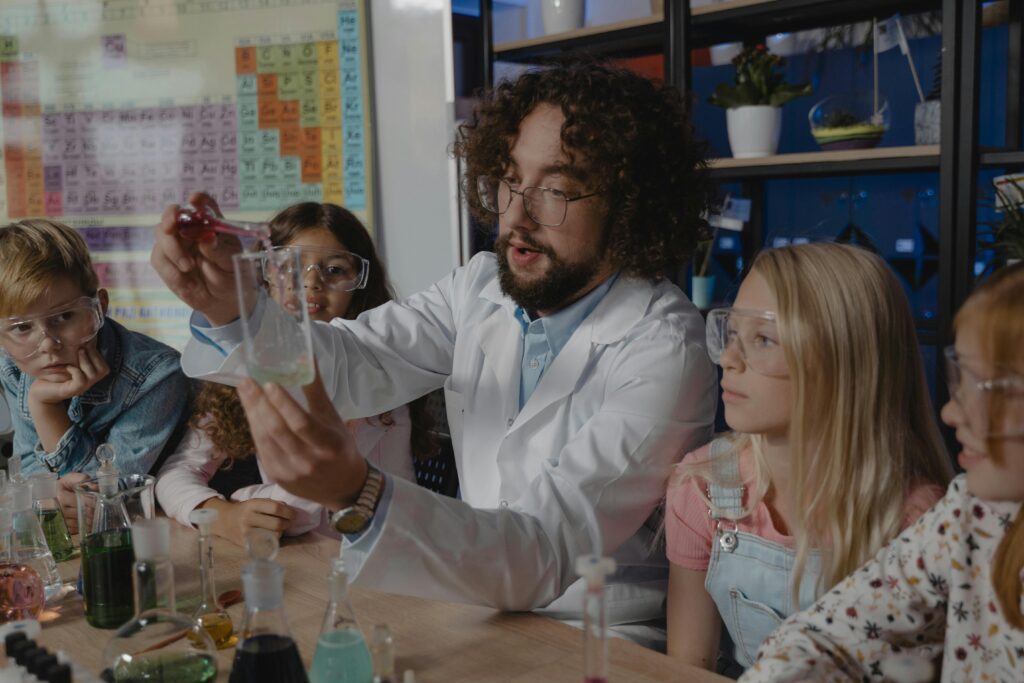
Joining Local Science Clubs
Getting involved in a local science club can greatly enhance your child’s preparation for science competitions. These clubs offer hands-on experiences, collaborative projects, and mentorship opportunities. They are perfect for sparking curiosity and fostering a love for science. Here’s how joining a science club can benefit your child.
Building Knowledge and Skills
Science clubs provide a platform for your child to dive deep into various scientific fields. They’ll get the chance to work on projects that aren’t typically covered in school. This hands-on learning helps build critical thinking and problem-solving skills. For example, your child might participate in experiments, coding projects, or engineering challenges. These activities will expand their knowledge and improve their practical skills.
Learning from Peers
In a science club, your child will interact with other students who share their interests. This peer interaction is invaluable. They can learn from each other, share ideas, and collaborate on projects. This collaborative environment fosters teamwork and communication skills, which are essential for science competitions. By working with peers, your child will also gain new perspectives and approaches to problem-solving.
Mentorship Opportunities
Many science clubs have mentors who are experts in various scientific fields. These mentors can provide guidance, answer questions, and offer advice on projects. Having a mentor can be incredibly motivating for your child. They’ll get insights from someone experienced and passionate about science. This mentorship can also help your child develop a clearer understanding of potential career paths in science.
Access to Resources
Science clubs often have access to resources that may not be available at home or school. This includes lab equipment, software, and specialized tools. Having access to these resources allows your child to conduct more complex experiments and projects. Additionally, clubs might have subscriptions to scientific journals or online databases. This can provide your child with up-to-date information and research material.
Participating in Competitions
Many science clubs participate in local, regional, and national competitions. Being part of a club that competes can give your child valuable experience. They’ll learn how to present their projects, answer questions from judges, and handle competition pressure. This experience is invaluable when preparing for larger science competitions. It builds confidence and helps your child understand the competitive environment.
Finding the Right Club
Finding the right science club for your child is important. Look for clubs that align with their interests and goals. Some clubs focus on specific areas like robotics, environmental science, or chemistry. Others might have a broader focus. Talk to your child about their interests and do some research on local clubs. Many schools, libraries, and community centers host science clubs. You can also find information online or through local science organizations.
Encouraging Commitment
Encourage your child to commit to their science club activities. Consistent participation will help them get the most out of the experience. Set aside time each week for club meetings and projects. Show interest in their work by asking about their projects and progress. Your support and encouragement will motivate them to stay engaged and enthusiastic.
Supporting Their Journey
Support your child’s journey by providing the necessary tools and resources at home. This could include a quiet workspace, basic lab equipment, or access to a computer. Encourage them to read scientific books and articles, watch educational videos, and explore science-related websites. This additional support at home will complement their activities in the science club and enhance their learning experience.
Building Lifelong Skills
Being part of a science club not only prepares your child for competitions but also builds lifelong skills. They’ll develop critical thinking, creativity, and perseverance. These skills are valuable in any career path. Moreover, the friendships and connections they make in the club can last a lifetime. Science clubs provide a supportive community where your child can grow and thrive.
Expanding Horizons
Science clubs often organize field trips, guest lectures, and workshops. These activities expose your child to new experiences and knowledge. They might visit a research lab, attend a lecture by a scientist, or participate in a workshop on renewable energy. These experiences broaden their horizons and deepen their understanding of the world. They also provide inspiration and motivation to pursue their scientific interests further.
Fostering a Love for Science
Ultimately, science clubs foster a love for science. They make learning fun and engaging. By being part of a science club, your child will discover the joy of exploration and discovery. This passion for science can lead to a fulfilling and exciting future. Encourage your child to join a local science club and watch their curiosity and enthusiasm for science grow.
Joining a local science club is a wonderful way to prepare your child for science competitions. It provides hands-on learning, mentorship, and opportunities for growth. By supporting your child’s involvement in a science club, you’re helping them develop valuable skills and a lifelong love for science. So, find a local club, get involved, and enjoy the journey of scientific discovery together!
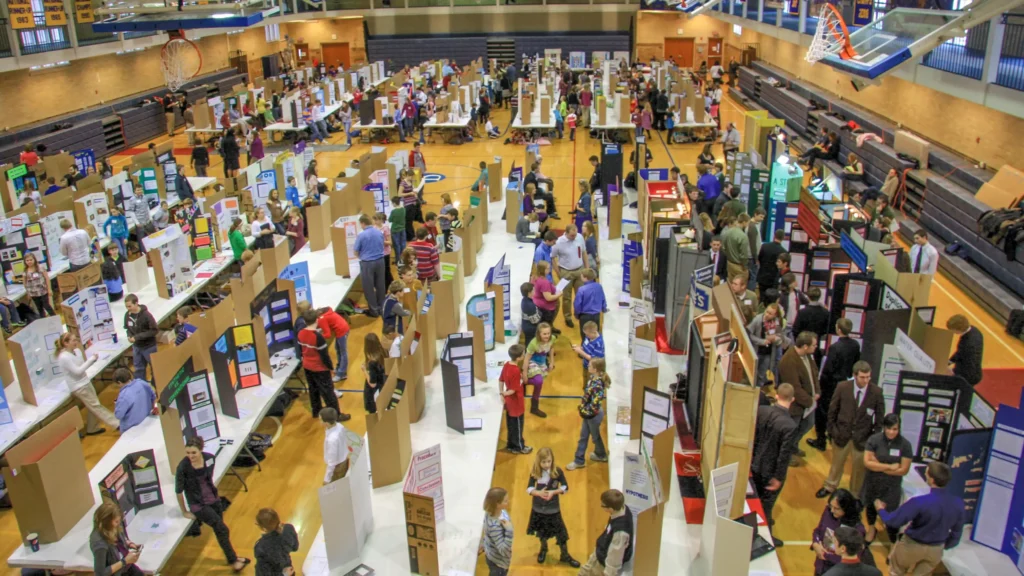
Participating in Science Fairs
Participating in science fairs can be an incredible experience for your child. It opens doors to exploration, learning, and achievement. Science fairs provide a platform for young minds to showcase their creativity and hard work. Here’s why science fairs are beneficial and how you can help your child get the most out of them.
Sparking Creativity and Curiosity
Science fairs ignite curiosity and creativity in children. They get to choose a project that interests them, which keeps them engaged and excited. Whether it’s a study on plant growth, a robotics project, or a chemistry experiment, your child will be motivated to explore and learn. This enthusiasm can lead to a deeper understanding and love for science.
Developing Research Skills
To participate in a science fair, your child needs to conduct research. This involves gathering information, analyzing data, and forming conclusions. These skills are crucial for their academic growth. Encourage your child to read books, watch documentaries, and use online resources to gather information. This process will enhance their research abilities and broaden their knowledge.
Enhancing Problem-Solving Abilities
Science fair projects often involve solving a problem or answering a question. Your child will learn to identify issues, hypothesize solutions, and test their ideas. This hands-on problem-solving helps develop critical thinking and analytical skills. These skills are valuable not only in science but in everyday life.
Building Communication Skills
Presenting their project at a science fair helps your child develop strong communication skills. They’ll learn to explain their ideas clearly and answer questions confidently. Encourage your child to practice their presentation at home. This will boost their confidence and help them communicate their ideas effectively.
Experiencing Teamwork
Many science fair projects can be done in pairs or small groups. Working with others teaches your child the importance of teamwork and collaboration. They’ll learn to share ideas, delegate tasks, and support each other. These teamwork skills are essential for their future education and career.
Gaining Recognition and Awards
Science fairs often award prizes for outstanding projects. Winning an award can boost your child’s confidence and encourage them to pursue their scientific interests further. Even if they don’t win, participating in a science fair is a significant achievement. It shows their dedication and hard work, which is something to be proud of.
Getting Feedback from Experts
At a science fair, your child will have the opportunity to present their project to judges and experts in the field. This feedback is invaluable. It can provide new insights, suggestions for improvement, and encouragement. Encourage your child to listen carefully to the feedback and use it to improve their project.
Exploring Different Areas of Science
Science fairs expose your child to various scientific fields. They might start with a project in biology and then discover an interest in physics or engineering. This exposure helps them understand the breadth of science and find their passion. Encourage your child to explore different topics and be open to new ideas.
Preparing for Future Competitions
Participating in science fairs is excellent preparation for more advanced competitions. Your child will gain experience in research, presentation, and handling questions from judges. This experience will be beneficial if they decide to participate in larger competitions in the future. It builds a strong foundation for their scientific journey.
Involving the Whole Family
Science fairs can be a fun and educational experience for the whole family. Help your child brainstorm ideas, gather materials, and create their display. Attend the science fair together and celebrate their hard work. This involvement shows your support and makes the experience more enjoyable for your child.
Making Science Fun
Ultimately, science fairs make learning fun. They turn scientific exploration into an exciting adventure. Your child will enjoy the process of creating their project, learning new things, and presenting their findings. This positive experience can foster a lifelong love for science.
Finding Local Science Fairs
To get started, look for local science fairs in your community. Many schools, libraries, and community organizations host them. You can also find information online. Check the requirements and deadlines, and help your child register for the fair. Make sure to mark the date on your calendar and start planning early.
Encouraging Continuous Learning
Encourage your child to continue learning and exploring even after the science fair. Discuss what they enjoyed about the experience and what they learned. This reflection helps reinforce their knowledge and enthusiasm for science. Encourage them to think about new projects and ideas for future fairs.
Participating in science fairs is a fantastic opportunity for your child. It enhances their skills, builds confidence, and fosters a love for science. By supporting and encouraging their participation, you’re helping them develop valuable skills for their future. So, find a local science fair, help your child get started, and enjoy the exciting journey of scientific discovery together!
Want to know about Top Ontario Schools Excelling in Science Competitions?
Also interested in learning about Math Olympiads? check out Math Olympiad page for more information!
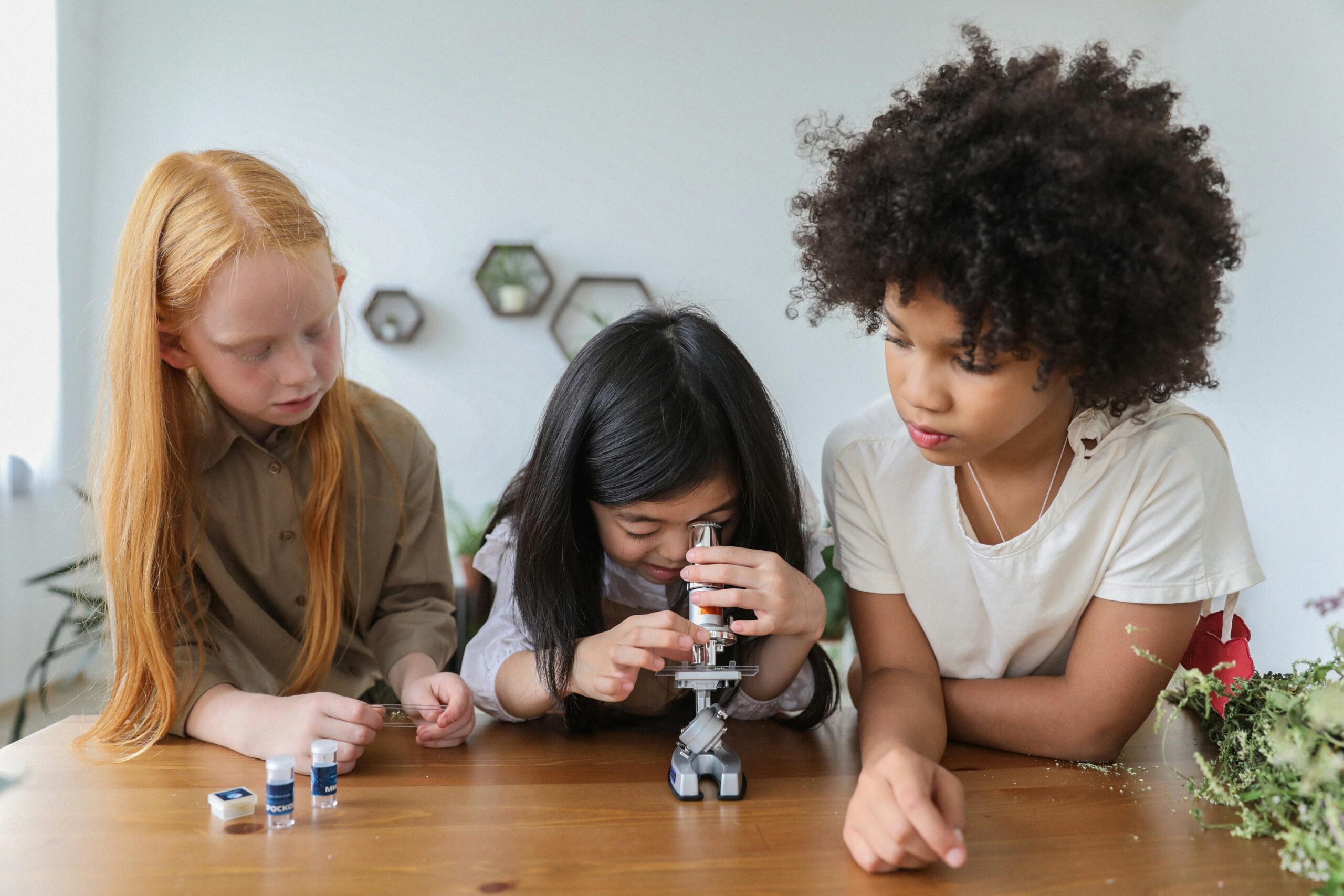
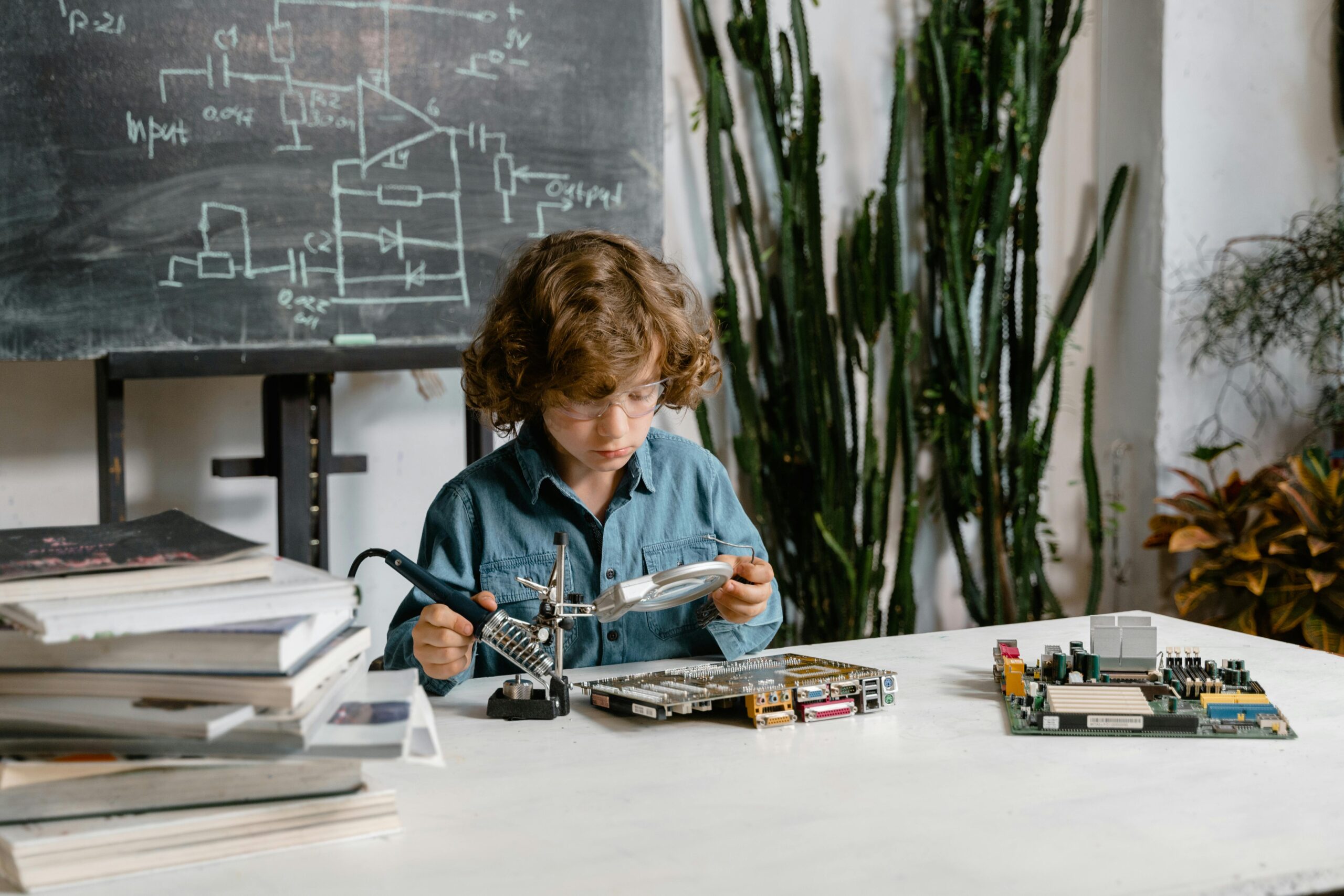


Your expertise really shines through in this article. The practical tips and insights you’ve shared are going to be very useful for my work.
I appreciate how you broke down this complex topic into manageable pieces. Your clear explanations and real-life examples made it so much easier to understand.
This post has been incredibly helpful in clarifying a lot of the questions I had. Thank you for providing such clear and concise information.
I really appreciate the depth of information you’ve provided here. It’s clear that you’ve put a lot of thought and effort into this post.
This post has really cleared things up for me.
This is one of the most informative posts I’ve read on this topic. Your clear explanations and real-life examples are incredibly helpful.
I’m always looking forward to your posts.